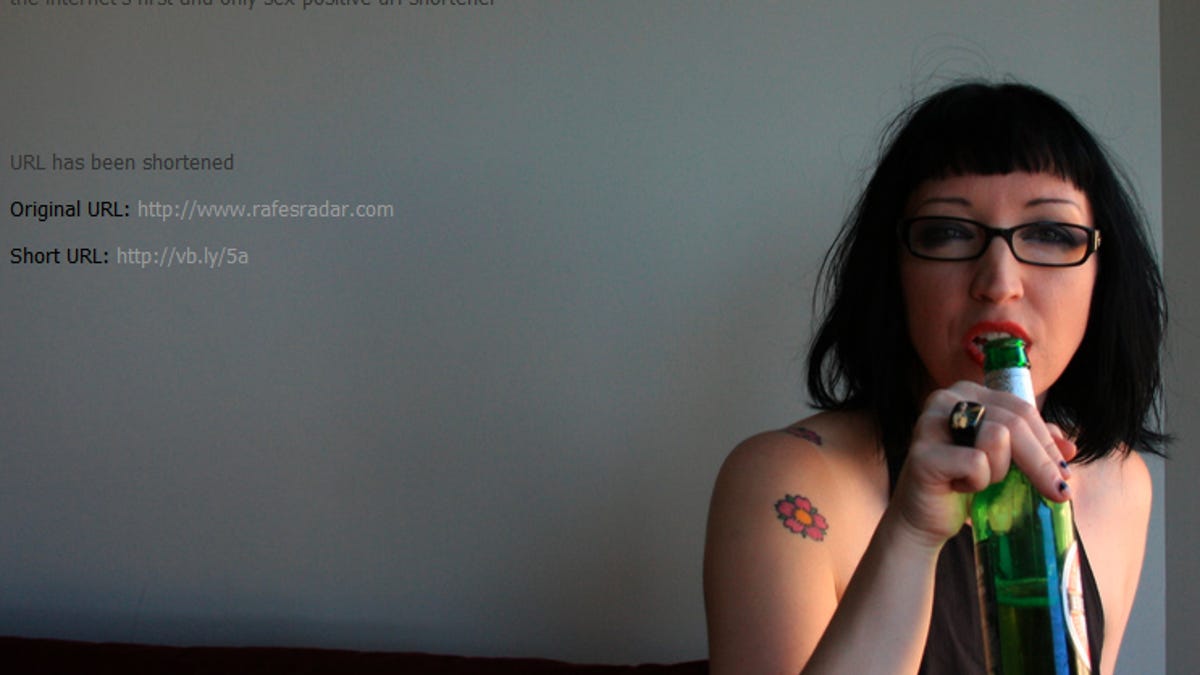'Sex-positive URL shortener' Vbly launches
Launch of a new link shortening service shines a light on shortener policies.

At first glance, this sounds like a joke, doesn't it? Sex writer Violet Blue has launched a new URL shortening service, Vbly (found at Vb.ly), called "the Internet's first and only sex-positive URL shortener."
This means that Vbly has a different policy than other shorteners. Blue, and Vbly creator Ben Metcalfe, encourage the use of this service for creating links to adult sites and other "NSFW" links. They do not run their links through filters, as the market-leading Bitly (found at Bit.ly) does. Although, as Blue says. "I think we'd remove links if we were asked to by a court or if we were made aware of anything involving illegal activity."
I suggested to Blue and Metcalfe that the open policy of Vbly would lead to a ton of spam links, a problem that led to the shut-down of URL shorteners like URLtea and Qurl. Metcalfe replied, "One person's spam might be another person's genuine interest. And if someone wants to create a Vbly link that points to their 'buy Viagra' Web site, that's fine and up to them. It doesn't particularly matter if we get a ton of those--it's not going to adversely affect the site either technically or commercially."
As is being done with Trim (found at Tr.im), the Vbly creators wants to open-source the service. "We'd like to make the entire database available for anyone to inspect," said Metcalfe. "There's a ton of cool and exciting things developers...can do with this." The Vbly API is already published and the code will be open source. However, unlike Trim, which creator Eric Woodward wants the community to actually run, Blue and Metcalfe will run the Vbly servers, the same way other open-source projects are commercially hosted.
How necessary is an unfiltered and open URL shortener? Todd Levy, VP of Product at Bitly, confirms that all links created on that service are run through a "series of blocklists," including Surbl and a Google list, but he says that "we never actually remove a link and we never prevent a link from being shortened." Rather, when a user clicks on a link that goes to a site on the blocklist, he or she will get an interstitial page warning them that the link is on a list, but allowing them to proceed to it if they wish.
The beginning of branded URL shorteners?
While I believe that all sites should create their own short URLs to take control of their own branding, it's possible that we're about to see the creation of more audience- or content-focused URL shorteners. Certainly, if Vbly is used as Blue and Metcalfe wish, it's quite likely that people will begin to associate Vbly links with adult content and will have certain expectations for those links when they click on them. Users might pause before clicking on a Vbly link at work.
But it's possible that Vbly will show us that there's room in the market for focused shorteners. For example, there may actually be a business model for the creation of a family-friendly URL shortener that could guarantee that links are safe for kids.

